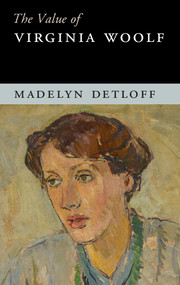2 - Incandescence: Attention and Illumination
Published online by Cambridge University Press: 05 March 2016
Summary
Lily Briscoe achieves her “vision” at the end of To the Lighthouse, but her vision is not a property of the painting that she sardonically imagines hanging obscurely in some future attic. Rather, the vision that Lily achieves is a habit of mind, a way of seeing the world with what philosopher Iris Murdoch calls “careful and just attention.” This way of seeing is connected to a concept Woolf introduces in A Room of One's Own – “incandescence.” She uses the term to describe a “mind” that is “disinterested” – or, at the very least, not self-interested. This is a challenging concept to grapple with, as “disinterestedness” risks being mistaken for “objectivity,” implying that one can transcend one's embodied existence and develop a perspective on the world that appears to come from “nowhere” rather than from a living, breathing, human being subject to material, psychological, cultural, and cognitive factors that inform that view. Philosopher Thomas Nagel describes the “view from nowhere” in his theory of the development of objectivity, arguing that objectivity is achieved through transcendence of one's limited perspective. While such transcendence is upheld as an ideal for scientific reasoning, it is ultimately an impossible ideal, for we are embodied, socially situated creatures who can only attempt to reason as if we were located “nowhere,” rather than coming from somewhere and somebody in particular. To be clear, incandescence is not this type of “transcendence.”
Perry Meisel describes the Paterian resonances of “incandescence,” suggesting that Shakespeare, for Woolf, “is the perfect Paterian artist because the implicit flame of his genius has fired out all kinetic residue … and made his work perfectly expressive of his already luminous temperament.” Given that all writers, including Shakespeare, are situated in particular sociocultural contexts that shape their ways of experiencing the world, they can't help but betray interests, dislikes, or preferences (a preference for Tudors over Plantagenets, for example, or negative perceptions of Jews, Moors, and Frenchmen, or belief in the divine right of kings) in their work. In an interaction akin to the dynamic system that, according to Barbara Herrnstein Smith, determines literary value, a writer's interests and preferences will be seen simply as “truths” or observations about “human nature” if the writer's interests align neatly enough with dominant cultural perspectives.
- Type
- Chapter
- Information
- The Value of Virginia Woolf , pp. 29 - 45Publisher: Cambridge University PressPrint publication year: 2016

